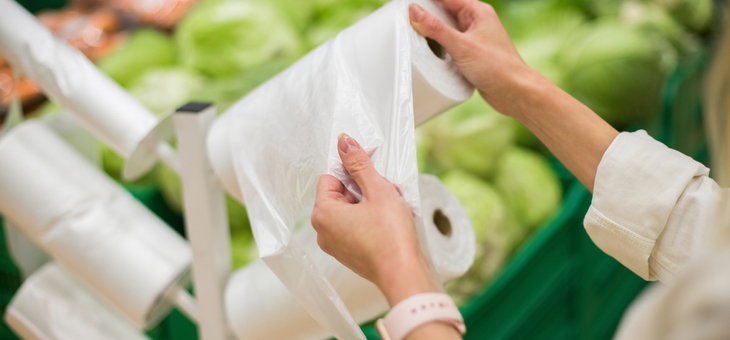Australia produces more single-use plastic waste per capita than any nation and our everyday shopping experience is about to change.
The startling statistic comes from the Plastic Waste Maker’s Index report produced by the Minderoo Foundation, which also claims that just 20 companies are responsible for 50 per cent of single-use plastic that ends up as waste.
Mining magnate Andrew Forrest, chairman and co-founder of the Minderoo Foundation, said “the plastification of our oceans” was among the greatest threats humanity and nature has ever confronted.
“Australia needs to take a hard look at our own backyard when it comes to single-use plastics being manufactured here,” he said.
“The very same companies, and there’s only a handful of them, causing climate change are the same companies who are producing polymer and giving lip service to recycling and lip service to redesigning plastics.”
The Minderoo Foundation report found that more than 130 million metric tonnes of single-use plastic ended up as waste in 2019. About 19 per cent of this waste, 25 million metric tonnes, became litter.
It is expected that there will be a 30 per cent increase in global throwaway plastic production over the next five years. The foundation says this production growth will lead to an extra three trillion items of plastic waste by 2025.
The foundation calls for regulations requiring petrochemical companies to disclose their plastic waste footprint and commit to transitioning away from fossil fuels toward “circular models of plastic production”. It also calls for banks and investors to back companies using recycled plastic feedstocks.
The American Chemistry Council (ACC) called the report misleading, saying it undermined the role plastics play in lowering greenhouse gas emissions.
However, a pact was signed last week between leading Australian supermarkets and multinational companies, which would see the elimination of plastic waste from supply chains by 2025.
The ANZPAC Plastics Pact is supported by Aldi, Coles and Woolworths. It pledges to “eliminate unnecessary and problematic plastic packaging; ensure 100 per cent of plastic packaging is recyclable, reusable or compostable; increase plastic packaging collected and effectively recycled by at least 25 per cent; and ensure an average of 25 per cent recycled content in plastic packaging across the APAC region”.
Jeff Angel, from the Boomerang Alliance – a group of 53 organisations that are working to reduce plastic pollution – told The New Daily the pact would fail because “there was nothing and no-one to hold those signed-up companies accountable”.
Jenni Downes, a research fellow at Monash University’s Sustainable Development Institute, told ABC News it was vital for there to be a market for recycled plastic once waste products are collected.
“We need people to say we’re going to secure all of this plastic and turn it into new products,” she said. “Without that, there’s no value in collecting it.”
Read more: How air pollution hurts us
The Guardian reports that plastic cutlery and straws are among the types of single-use plastics to be phased out in Australia from 2025 under a plan to reduce plastic waste.
The project is supported by the WWF-Australia Nature Maintenance Fund, with spokesperson Kate Noble saying the objectives will mean we have to change the way we shop.
It’s hard to imagine a world without plastic, but we need to get there, she said.
“Some things, like straws and lightweight plastic bags, seem to have disappeared. In many cases, they aren’t needed.
“Shampoo bottles were previously made of virgin plastic but are made of 100 per cent recycled material. This is one of the biggest changes that makes the biggest difference.”
Supermarkets have begun to change the way plastics are used to wrap products.
TND reports that ALDI has already phased out unnecessary disposable plastics such as disposable plastic tableware, and Coles promises to do the same by 1 July.
Coles is experimenting with a new BYO deli system with reusable containers at some stores in Melbourne.
And Woolworths was the first major retailer to phase out plastic bags.
A national meeting of environment ministers in April confirmed that the phase-out would cover eight types of “problematic and unnecessary” plastic waste: lightweight plastic bags, plastic misleadingly labelled ‘degradable’, plastic utensils and stirrers, plastic straws, polystyrene food containers, polystyrene consumer goods packaging and microbeads in personal care products.
Read more: Infertility linked to chemical pollution
Australia produces 2.5 million tonnes of plastic waste each year and about 84 per cent ends up in landfill. About 130,000 tonnes of plastic waste reaches the environment annually.
A major overhaul of management and enforcement is required to fix our deplorable plastic waste record, say conservationists.
“A government review found no state or territory had investigated or penalised a company over their performance on packaging waste in the past four years,” The Guardian reports.
Industry body the Waste Management and Resource Recovery Association of Australia warns that the government will miss its packaging targets unless there are “significant reforms”.
An independent review of current laws found there were “no reported compliance actions, investigations or complaints from states and territories in four years”.
“This does not indicate an absence of non-compliance from liable brand owners, but an absence of compliance and enforcement action by states and territories,” the review said.
Is Australia doing enough to reduce plastic waste? Do you know how to reduce your use of plastics? What tips can you share?
Read more: Plants that reduce pollution in your home
If you enjoy our content, don’t keep it to yourself. Share our free eNews with your friends and encourage them to sign up.

